How To Make Cannabis Oil At Home: A Step-By-Step Guide
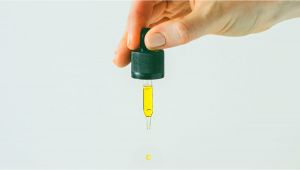
- 1. What are the health benefits of taking cannabis oil?
- 2. What uses can you make of cannabis oil?
- 3. How to make cannabis oil at home
- 3. a. Necessary tools and ingredients to make weed oil
- 3. b. Step 1: decarboxylating your buds
- 3. c. Step 2: melting the oil
- 3. d. Step 3: adding the decarboxylated marijuana
- 3. e. Step 4: straining the mix and pouring it into a jar
- 4. The best cannabis oil recipes
- 4. a. Infused vegan chocolate fudge
- 4. b. Infused raspberry puree
- 4. c. Infused basil pesto
- 5. In conclusion
When it comes to the forms of consumption of marijuana, there are some that are just true classics, real traditional forms. The words joint, bongs, oil, and magic brownies are just some of the whole lot that pops into our heads as we say this. Cannabis has been used in joints, pipes, and as oil for thousands and thousands of years. In fact, there's even evidence of cannabis seeds that date as far back as the year 2737 B.C in Ancient China by Emperor Sheng Nung. Now, what hint does this give us other than marijuana's properties are indeed great and evident, and that it really is a gift from nature that we're talking about? Marijuana is a compound as noble as avocado is for foodies, the benefits uncountable and always adding.

So, it's time you submerge deeper into the cannabis culture and learn everything about weed oil and how to make it at home.
1. What Are The Health Benefits of Taking Cannabis Oil?
Before you learn how to make your own cannabis oil at home, you should perhaps be aware of the great benefits and uses you can make of it. This way, if you were feeling slightly dubious about whether you should or should not make it, this will give you the necessary inspiration boost. However, when it comes to canna-oil, it all depends on the strains you use to make it, really. A CBD oil for sure won't provide the same effects as a THC oil. Likewise, strains rich in certain terpenes will provide this or that benefit that others won't, and vice versa. So, let's go through the main differences between THC and CBD oil to help you make the right call.
| Properties & Benefits | THC | CBD |
|---|---|---|
| Pain relief | X | X |
| Anti-inflammatory | X | |
| Appetite stimulation | X | X |
| Reduce nausea and vomiting | X | X |
| Relieves anxiety | X | |
| Aids sleep | X | |
| Reduces seizures and convulsions | X | |
| Helps skin disorders | X | |
| Suppresses muscle spasms | X | X |
However, these are just the tip of the iceberg, both THC and CBD come along with a vast variety of benefits and properties so consult with a doctor or a weed connoisseur to get help and guidance on what's the ideal strain for your treatment. In truth, there are many different kinds of cannabis oil available. However, full-spectrum cannabis oil has become one of the most popular, especially among medicinal users. These preparations don’t favor one cannabis constituent above another. Rather, they contain all of the beneficial compounds found within cannabis, including cannabinoids like THC and CBD, terpenes, flavonoids, and others.
Ongoing studies are looking into how these molecules might work together in a synergistic fashion, a phenomenon referred to as the entourage effect. Researchers are still figuring out how this works, but it appears that some cannabis compounds can amplify each other's effects. The extremely high concentrations of cannabinoids in these extracts also target the endocannabinoid system—the universal regulator of the human body. By interacting with the receptors of this system, high-potency cannabis oil can help to regulate homeostasis across many systems in the body.
2. What Uses Can You Make Of Cannabis Oil?
Marijuana-infused oil can be used for many different things, from the medical field to gastronomy. Keep in mind that intaking cannabis oil means that you're consuming marijuana orally, so the effects should normally take between half an hour and an hour to kick in. Weed infused oil can be added to your drinks, such as coffee, tea, or even smoothies. You can also simply take a few drops under your tongue, sublingually, and even apply it directly on your skin as a rubbing oil for a soothing massage, where the oil will work as a topical.
But these are just the most conventional ways of using canna-oil, you could also add it to your favorite recipes to spice up the flavor, for instance into your salads. Just make sure that you calculate the right dosage you should take, which should take into account your body weight, the product's concentration, and the use you're giving it.
3. How To Make Cannabis Oil At Home
So, if you also want to become a part of the smart group of people who indulge in cannabis oil's properties and health benefits then it's time to learn how to make your own canna-oil at home.
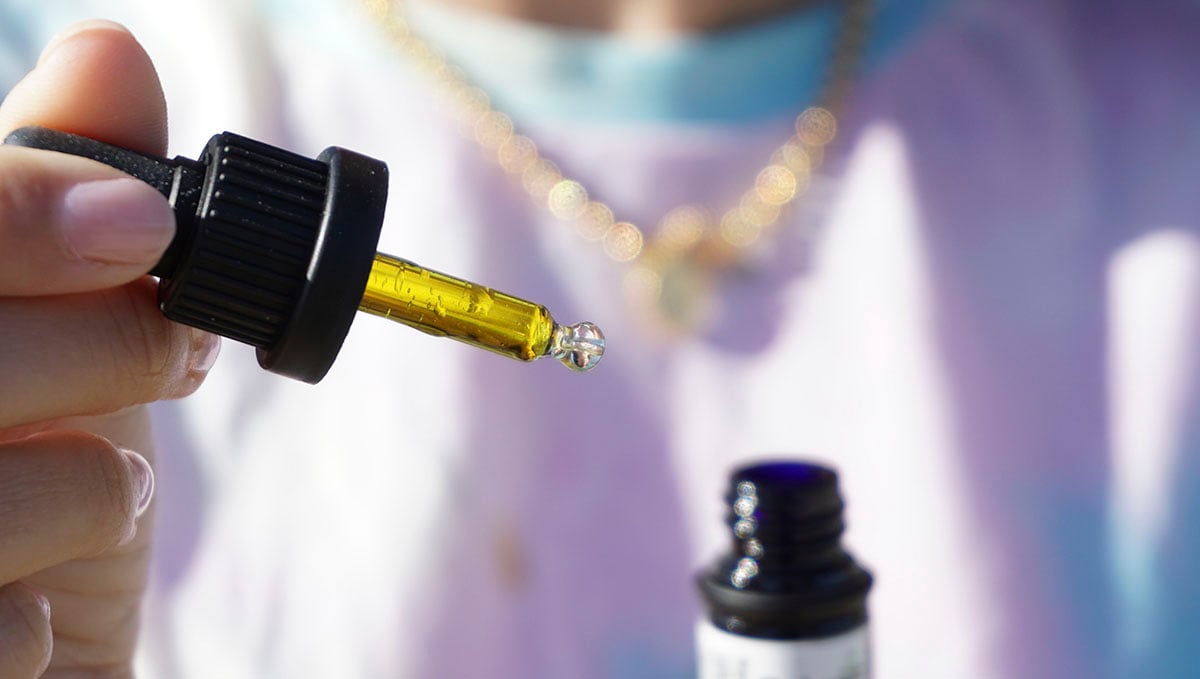
But before we start, let's make sure we count with all the required tools and ingredients to make your weed oil at home, or whether you should pay a quick visit to the groceries before you get your hands on the process.
Necessary Tools and Ingredients To Make Weed Oil
In order to make marijuana oil at home you need to make sure you have the following things:
- 1 cup of any oil of choice, we suggest coconut or olive oil, depending on the use you'll give your oil;
- 7 to 10 grams of decarboxylated marijuana buds;
- An oven tray;
- 1 sheet of baking paper;
- A double boiler or a slow cooker saucepan;
- 1 cheesecloth (best if organic unbleached);
- A fine mesh strainer;
- A glass bowl;
- A spoon;
- Probe thermometer (optional though recommended);
- And a mason jar with a lid or a dropper for storage.
We strongly recommend using coconut oil given it's also quite great if we take a moment to consider its benefits. Besides, it tastes great, like a Hawaiian breeze. However, we do know that coconut oil can be slightly expensive, so it's all up to you. Either way, you can still use olive oil to blend with your cannabis, which will make it especially good for cooking too.
Step 1: Decarboxylating Your Buds
Now, if this isn't your first weed-related craft-making then you most probably already know how vital it is to do this step. In case you don't, allow us to explain. Decarboxylation is the process in which we activate the different compounds present in the marijuana family. It is through this process that we turn the acidic forms of the usually sought cannabinoids into their active state, from THCA and CBDA to THC and CBD. Learn all about decarboxylation in the following article:
So, in order to decarboxylate your buds, you'll need to tear them into smaller pieces and place them over a sheet of baking paper on an oven tray. Then set the oven between 110 and130 °C and insert the tray inside for about 20-40 minutes, depending on the temperature you've set, we always recommend low and slow to prevent any tragedies.

Check on the buds every now and then, and turn them around every 5 or 10 minutes to prevent any sides from getting burnt.
Step 2: Melting the Oil
You can either start doing this while you decarb your buds or once they're done, either way just make sure you don't forget about them in the oven. In the meantime, the next step towards making cannabis oil is melting the coconut oil or heating the olive oil. Take a saucepan, ideally, you should use a double boiler if you have one at home. Fill up the water compartment and add 1 cup of coconut oil on the upper part. Simmer on low heat until the coconut turns into liquid.
Step 3: Adding The Decarboxylated Marijuana
Now that the coconut oil has turned liquid you've got the green light to add in the weed, which, again, should be previously decarboxylated. Remember to grind the buds, and feel free to add some raw cannabis in the mix as well.
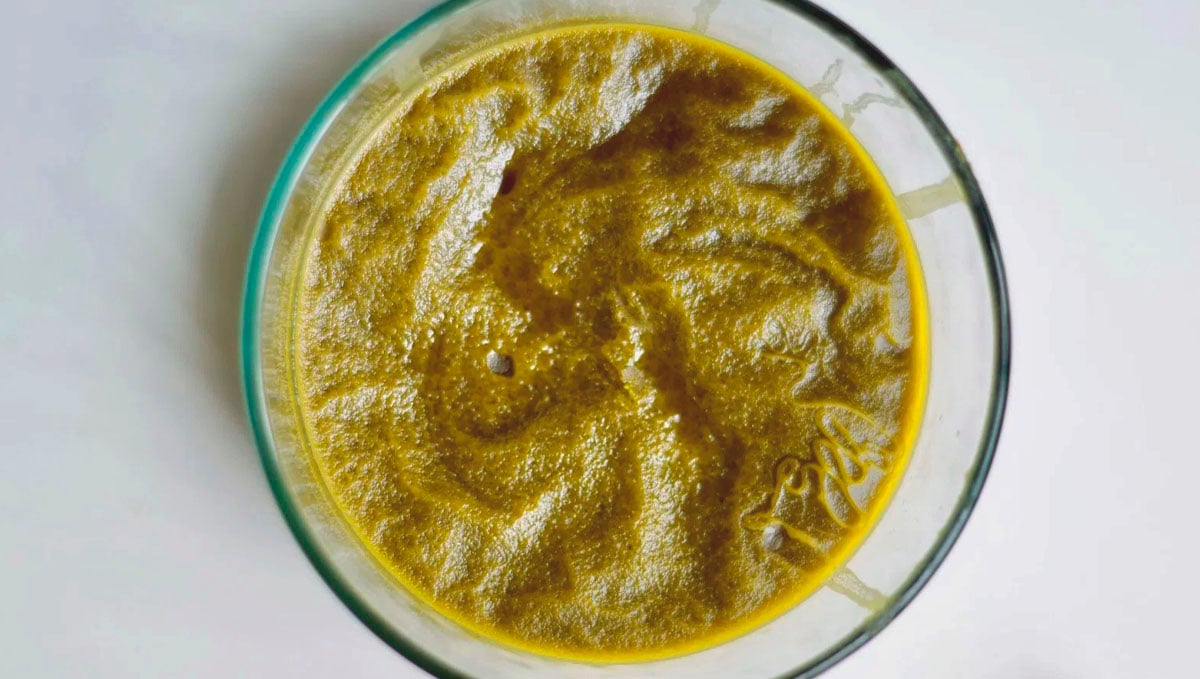
Raw marijuana provides amazing benefits too, check them out in the following article:
Keeping the heat low and stirring occasionally, check that the buds blend well with the coconut, ideally being completely covered by it. You should do this for a minimum of 3 hours if you're using a saucepan, although 6 hours is recommended for most cases. Some recipes even continue this process for several hours more. The heat should never go over 115 °C to avoid any ugly surprises, a.k.a. burning anything. The ideal temperature is somewhere between 50 °C and 70 °C, therefore, if you count with a probe thermometer to check on this then definitely use it.
Step 4: Straining The Mix And Pouring It Into A Jar
Once enough time has passed, it's time to turn off the heat and strain the cannabis parts from your oil. Set the cheesecloth over your mason jar and pour the mix inside.
Warning!Be careful that you don'tn get burnt since the oil will most likely be quite warm. Also, chuck on some gloves if you'd like to skip getting your hands greasy.
Some people suggest you should squeeze the cheesecloth once it's stopped dripping, however, don't overdo this since you'll squeeze extra chlorophyll into the oil, which doesn't taste too good. If you'd like you can still use the remaining plant material for cooking, or you can just discard it.

Cannabis oil is normally good and effective for about 2 months if properly stored. In order to extend its shelf life, you can also store it inside the fridge. It's not unusual to see the parts separate or solidify while the product is unused, just rub it with your hands as you give it some warmth and you'll see it turn liquid again.
4. The Best Cannabis Oil recipes
Infused Vegan Chocolate Fudge
Ingredients
- 170 grams of dark chocolate chopped into small pieces
- 300 ml full-fat coconut milk
- 75 ml maple syrup
- 45 ml aroma-free coconut oil
- 2 ml vanilla extract
- 10 ml cannabis oil
Instructions
Step 1
Place chocolate in a bowl and set aside.
Step 2
In a saucepan, combine the coconut milk, maple syrup, coconut oil, and vanilla extract and bring to a simmer over medium heat. Transfer the mixture to a blender and mix on high until smooth.
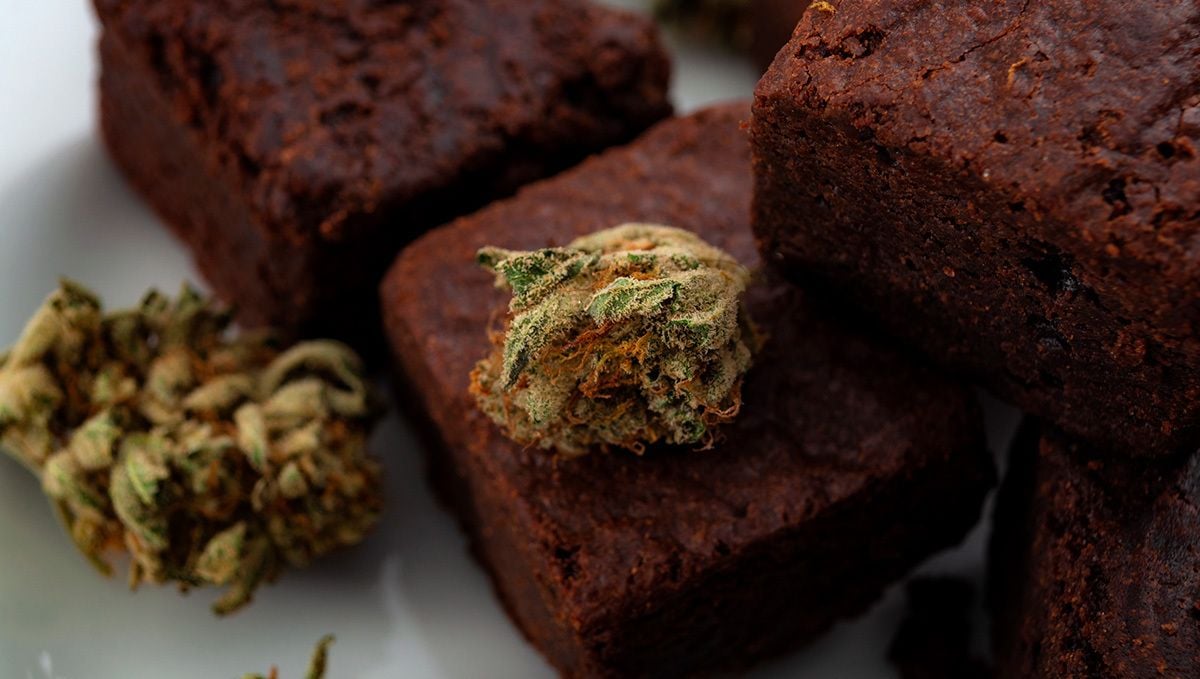
Step 3
Grab the bowl with the chocolate, pour the coconut milk mixture over it and mix until homogeneous. Pour the mixture into the fudge molds and let cool down to room temperature. Then transfer molds to the fridge for a minimum of 8 hours, then place in an airtight container and refrigerate for up to 8 weeks.
Infused Raspberry Puree
Ingredients
- 375 grams raspberries
- 60 ml maple syrup
- 60 ml water
- 5 ml cannabis oil
Instructions
Step 1
In a saucepan, combine the raspberries, maple syrup, and water and bring to a simmer over medium heat. Then reduce heat to low and let simmer for around 10 minutes, until raspberries become aromatic.
Step 2
Remove the mixture from heat and let it cool down to room temperature.
Step 3
Once cooled, transfer the raspberry mixture to a blender and add the cannabis oil. Mix on high until the mixture becomes a puree and strain through a fine mesh.
Step 4
Consume immediately or refrigerate in an airtight container for up to 1 week.
Infused Basil Pesto
Ingredients
- 5 ml sea salt
- 250 ml basil leaves
- 2 green onions
- 2 cloves fresh garlic
- ¼ cup toasted pumpkin seeds
- 175 ml olive oil
- 15 ml nutritional yeast
- 5 ml cannabis oil
- 2 ml freshly ground black pepper
Instructions
Step 1
Fill a small saucepan with water and half of the sea salt, and bring to a boil over medium heat. Then add the basil and blanch for around 10 seconds until it’s bright green.
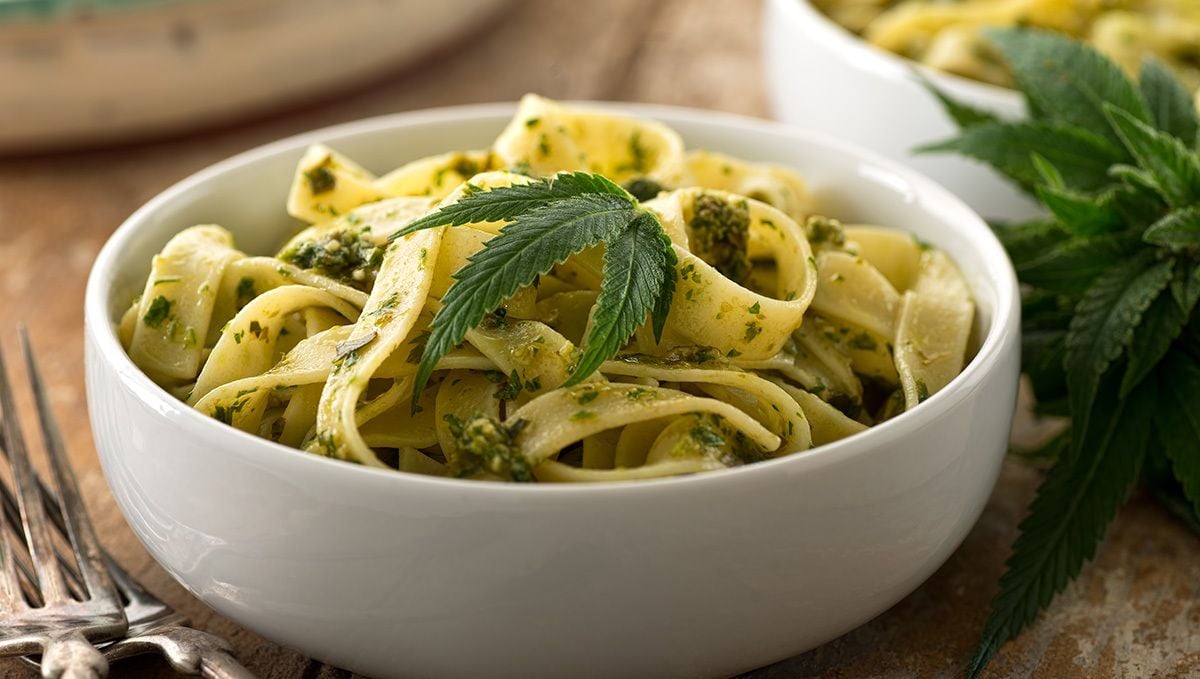
Then remove from heat and cool in ice water. Once cooled, remove the basil and dry thoroughly.
Step 2
In a blender or food processor, combined the basil, remaining salt, green onions, garlic, pumpkin seeds, olive oil, yeast, cannabis oil, and pepper, then pulse until smooth. Then remove from the blender and use immediately or store in an airtight container in the fridge for up to two weeks.
5. In Conclusion
Making cannabis oil is seriously easy, don't fear trying it out! In fact, weed-infused oil is a great way to approach marijuana for the first time when you haven't ever tried consuming the plant. Don't stay inside the mold and follow a system made for consumption, it's time to get our own hands dirty and make the products we consume by ourselves instead of buying the already-made and capitalized version. This way you'll grab full control of what you consume and you'll be able to adapt the product to your own needs. We hope your canna-oil turns out just perfect for your taste! And please do send comments on your final results!











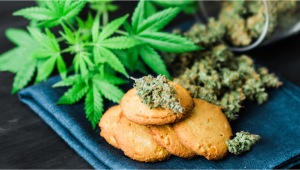



Comments